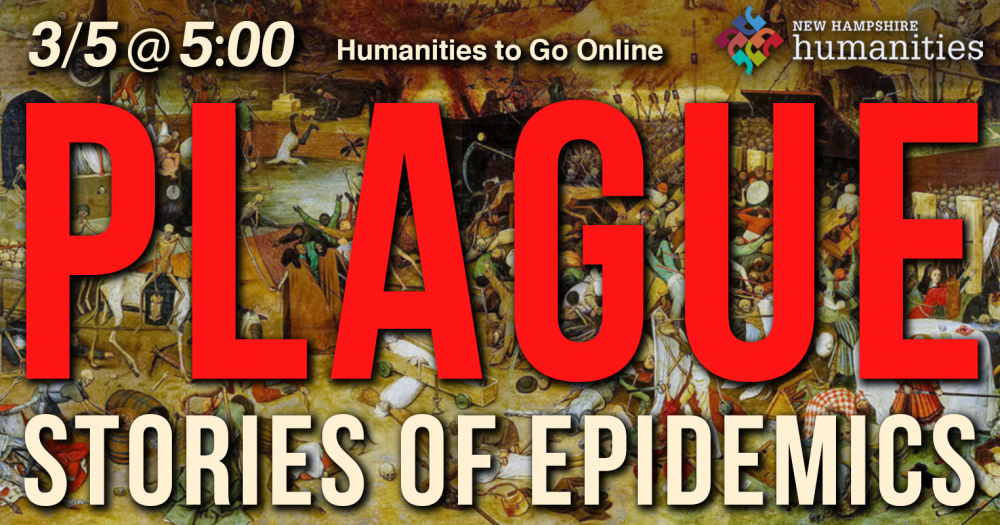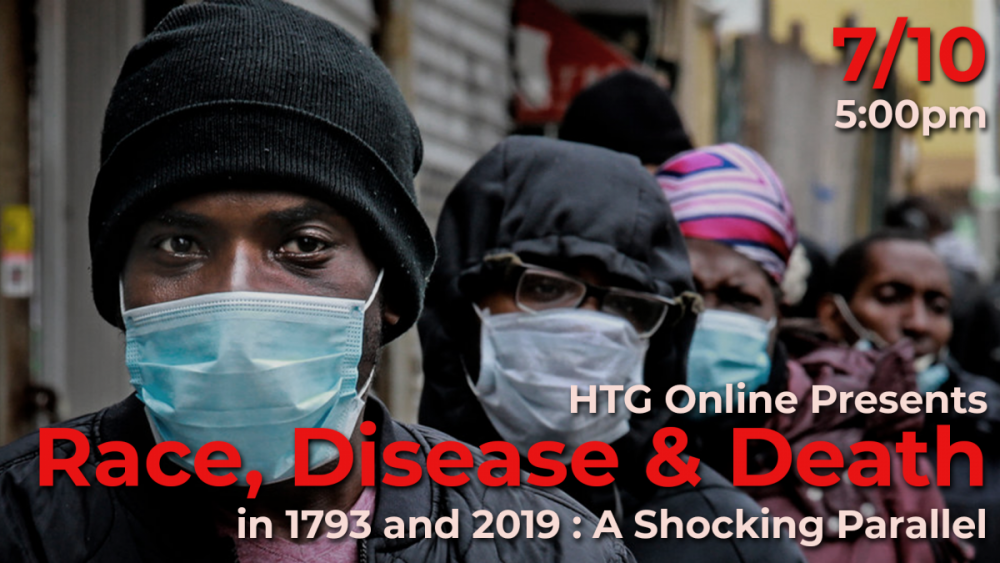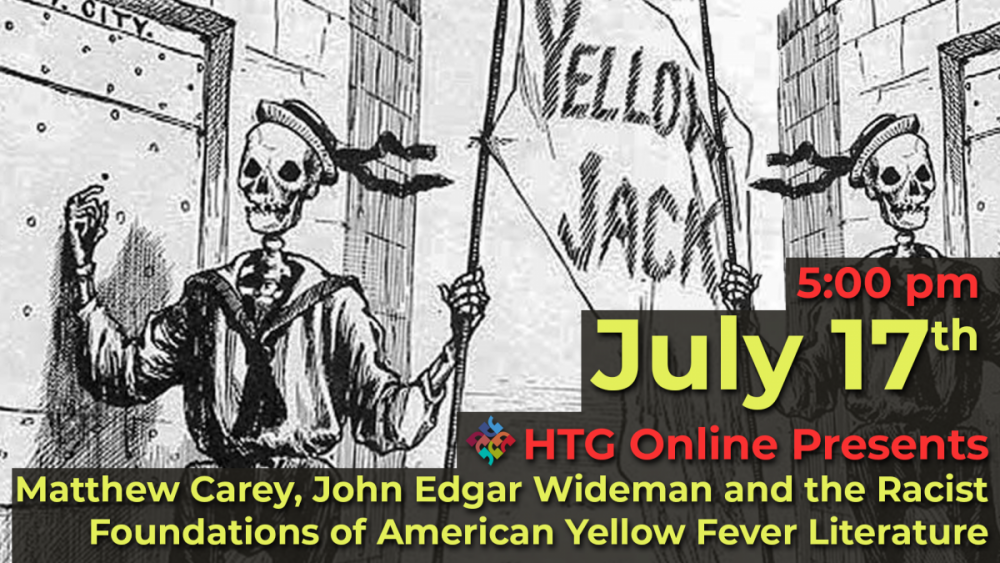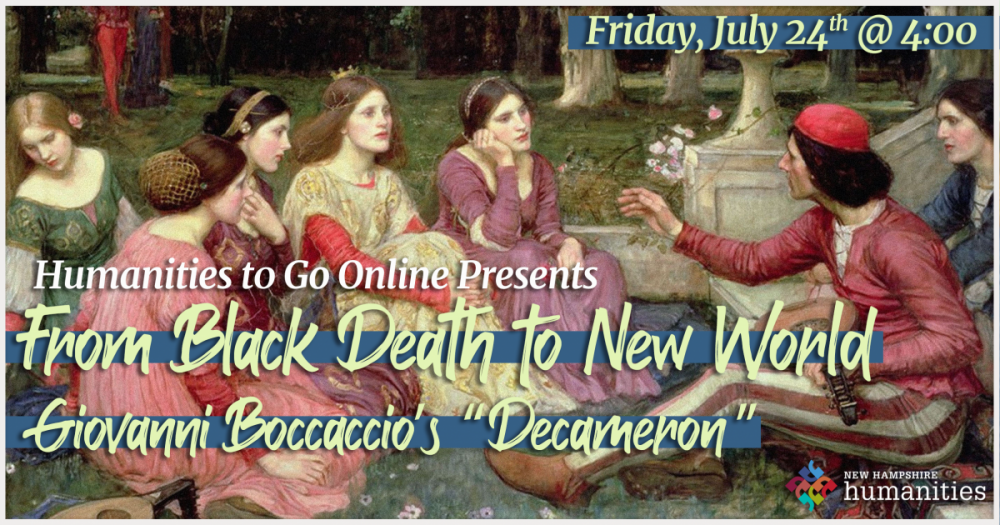Epidemics & the Humanities
The humanities can provide us with many important insights during our current public health crisis. Check out the links below to explore epidemics and disease in historical and literary contexts.
Past Programs

Friday, March 5, 2021
Plague: Stories of Epidemics
Presented by Dr. Katherine Gaudet (UNH)
UNH's own Dr. Katherine Gaudet explores stories of epidemics in this special Humanities to Go Online event. Are we living through a Biblical plague or feeling the wrath of the gods on our society, like Thebes in the time of Oedipus? This talk considers what stories, histories, and legends of epidemics have to tell us about how to understand our own time.
WATCH the recorded program.
List of books recommended in this program:
- Albert Camus, The Plague
- Jose Saramago, Blindness
- Tony Kushner, Angels in America
- Ling Ma, Severance, Elizabeth Fenn, Pox Americana
.
.
 Friday, July 10, 2020
Friday, July 10, 2020
Race, Disease, and Death in 1793 and 2019: A Shocking Parallel
Presented by Dr. Kabria Baumgartner (UNH)
 Friday, July 17, 2020
Friday, July 17, 2020
Matthew Carey, John Edgar Wideman and The Racist Foundations of American Yellow Fever Literature
Presented by Dr. Donald Pease (Dartmouth)
American writers regard epidemics as cultural agencies capable of performing significant social and political actions as well as biological events that exert long-lasting and wide-ranging effects on the national body politic. In his 1793 account of the Yellow Fever epidemic that plagued Philadelphia in 1793, the Irish immigrant Matthew Carey claims that Philadelphia brought the contagion on itself through the "prodigality and dissipation" that he associates with Philadelphia’s Free Blacks (whom he describes as 'naturally" immune to the disease) and the city’s welcoming displaced blacks from Saint Domingue, to sow the seeds of sedition, slave rebellion, and political corruption in what was then the nation’s capital. Matthew Carey inaugurated a tradition of American yellow fever literature that racialized the disease. In his talk, he will focus on the contemporary implications of the African-American novelist John Edgar Wideman’s response to Carey in his 1989 narrative 'Fever.'
 Friday, July 24, 2020
Friday, July 24, 2020
From ‘Black Death’ to ‘New World’: Giovanni Boccaccio’s Decameron
Presented by Dr. Michael William Wyatt (Dartmouth)
Written in the wake of the plague that devastated Europe between 1346 and 1353, Giovanni Boccaccio’s Decameron is a remarkable book that served both to fix the calamity in his fellow Florentine’s collective memory and to point the way to a wide range of possibilities for imagining the future. This talk will first take into consideration Boccaccio’s eye-witness account of the ‘Black Death’ in Florence (that killed upwards of two-thirds of the city’s population over eight months in 1348) and then explore one of the ten days of narrated stories around which the Decameron is organized, in order to provide a glimpse of the new world Boccaccio sought to frame from the ruins of the old order. WATCH the recorded program
Additional Resources
WATCH/LISTEN:
Special interdisciplinary series of recorded lectures from Dartmouth College on epidemics in history
READ: